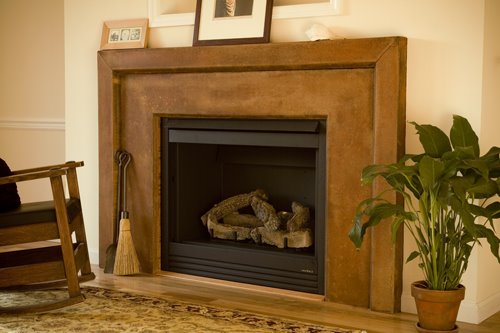This is an article from the New York Times written by Kate Murphy on July 24th about Granite countertops in the home;
SHORTLY before Lynn Sugarman of Teaneck, N.J., bought her summer home in Lake George, N.Y., two years ago, a routine inspection revealed it had elevated levels of radon, a radioactive gas that can cause lung cancer. So she called a radon measurement and mitigation technician to find the source.
TESTING Reports of granite emitting high levels of radon and radiation are increasing.
DETECTION Using devices like the Geiger counter and the radiation detection instrument Stanley Liebert measures the radiation and radon emanating from granite like that in Lynn Sugarman’s kitchen counters.
“He went from room to room,” said Dr. Sugarman, a pediatrician. But he stopped in his tracks in the kitchen, which had richly grained cream, brown and burgundy granite countertops. His Geiger counter indicated that the granite was emitting radiation at levels 10 times higher than those he had measured elsewhere in the house.
“My first thought was, my pregnant daughter was coming for the weekend,” Dr. Sugarman said. When the technician told her to keep her daughter several feet from the countertops just to be safe, she said, “I had them ripped out that very day,” and sent to the state Department of Health for analysis. The granite, it turned out, contained high levels of uranium, which is not only radioactive but releases radon gas as it decays. “The health risk to me and my family was probably small,” Dr. Sugarman said, “but I felt it was an unnecessary risk.”
As the popularity of granite countertops has grown in the last decade — demand for them has increased tenfold, according to the Marble Institute of America, a trade group representing granite fabricators — so have the types of granite available. For example, one source, Graniteland (graniteland.com) offers more than 900 kinds of granite from 63 countries. And with increased sales volume and variety, there have been more reports of “hot” or potentially hazardous countertops, particularly among the more exotic and striated varieties from Brazil and Namibia.
“It’s not that all granite is dangerous,” said Stanley Liebert, the quality assurance director at CMT Laboratories in Clifton Park, N.Y., who took radiation measurements at Dr. Sugarman’s house. “But I’ve seen a few that might heat up your Cheerios a little.”
But with increasing regularity in recent months, the Environmental Protection Agency has been receiving calls from radon inspectors as well as from concerned homeowners about granite countertops with radiation measurements several times above background levels. “We’ve been hearing from people all over the country concerned about high readings,” said Lou Witt, a program analyst with the agency’s Indoor Environments Division.
Last month, Suzanne Zick, who lives in Magnolia, Tex., a small town northwest of Houston, called the E.P.A. and her state’s health department to find out what she should do about the salmon-colored granite she had installed in her foyer a year and a half ago. A geology instructor at a community college, she realized belatedly that it could contain radioactive material and had it tested. The technician sent her a report indicating that the granite was emitting low to moderately high levels of both radon and radiation, depending on where along the stone the measurement was taken.
“I don’t really know what the numbers are telling me about my risk,” Ms. Zick said. “I don’t want to tear it out, but I don’t want cancer either.”
The E.P.A. recommends taking action if radon gas levels in the home exceeds 4 picocuries per liter of air (a measure of radioactive emission); about the same risk for cancer as smoking a half a pack of cigarettes per day. In Dr. Sugarman’s kitchen, the readings were 100 picocuries per liter. In her basement, where radon readings are expected to be higher because the gas usually seeps into homes from decaying uranium underground, the readings were 6 picocuries per liter.
Monday, July 28, 2008
Subscribe to:
Post Comments (Atom)


1 comment:
Congratulations! This is the best thing, Thank you so much for taking the time to share this exciting information.
Expando
Post a Comment